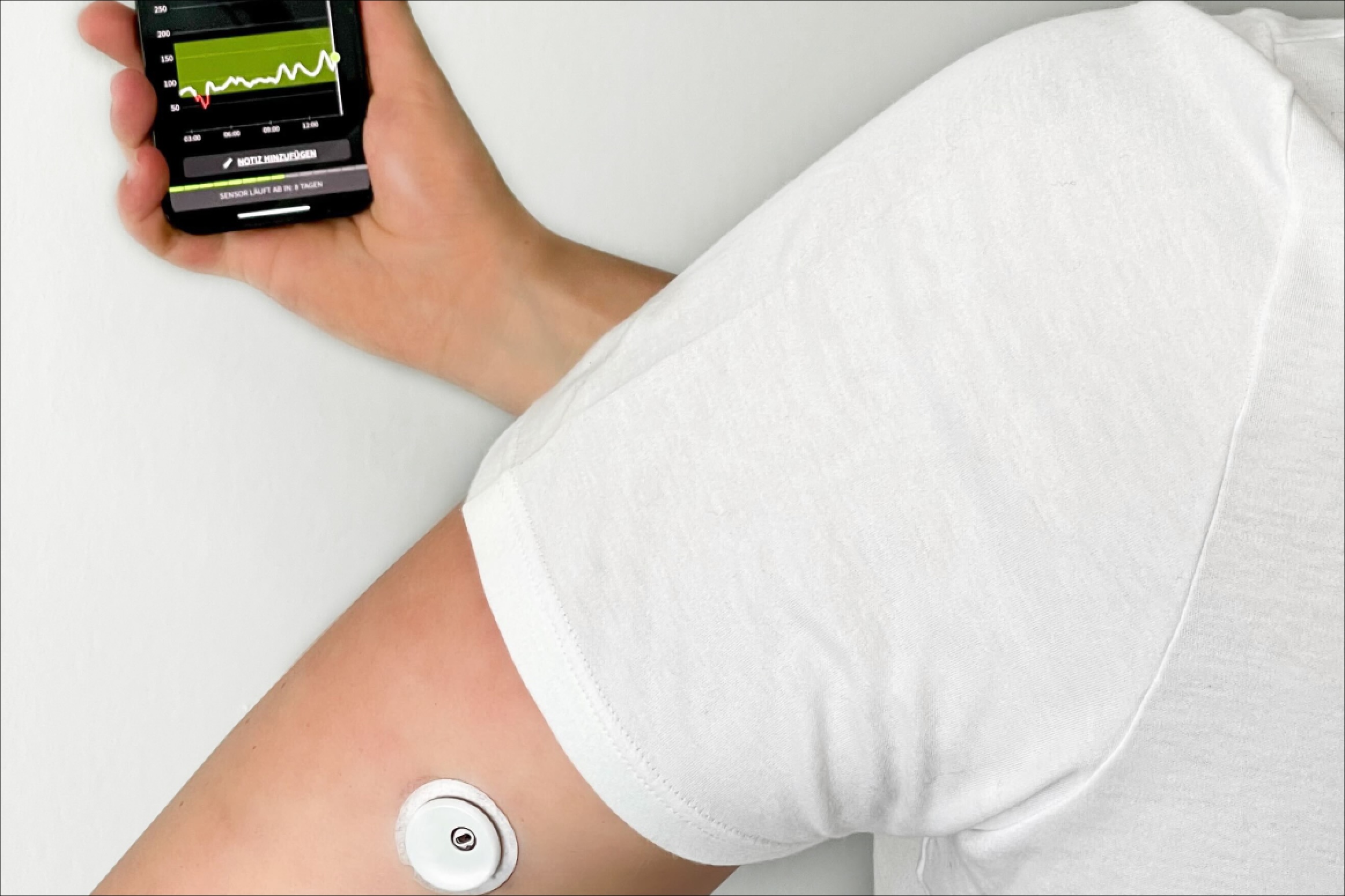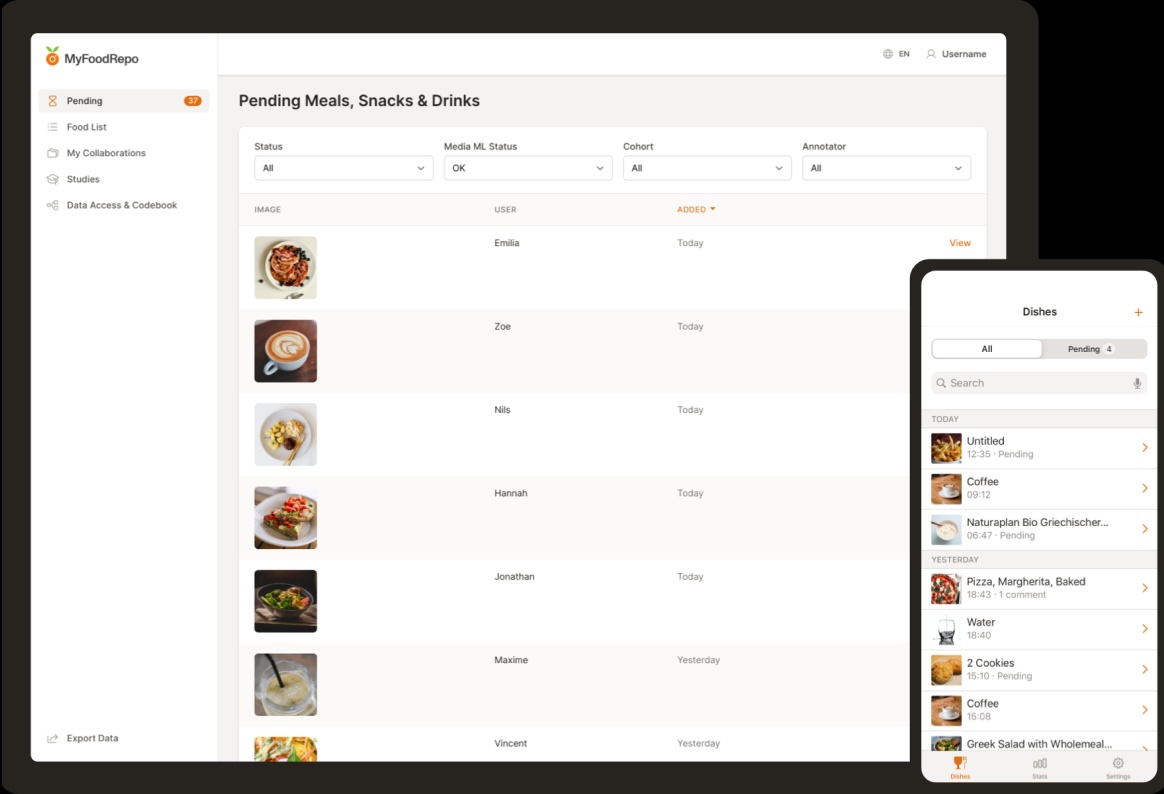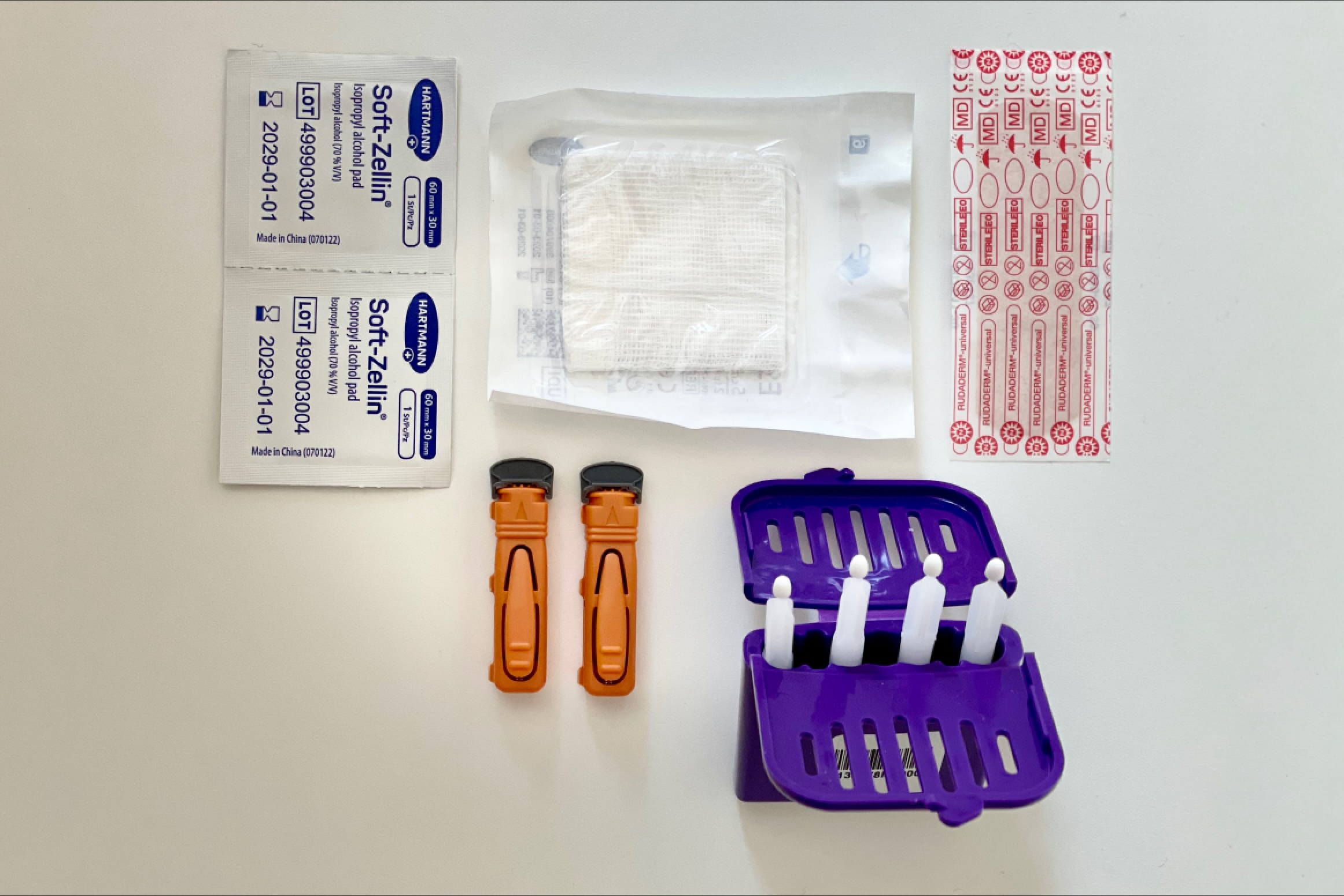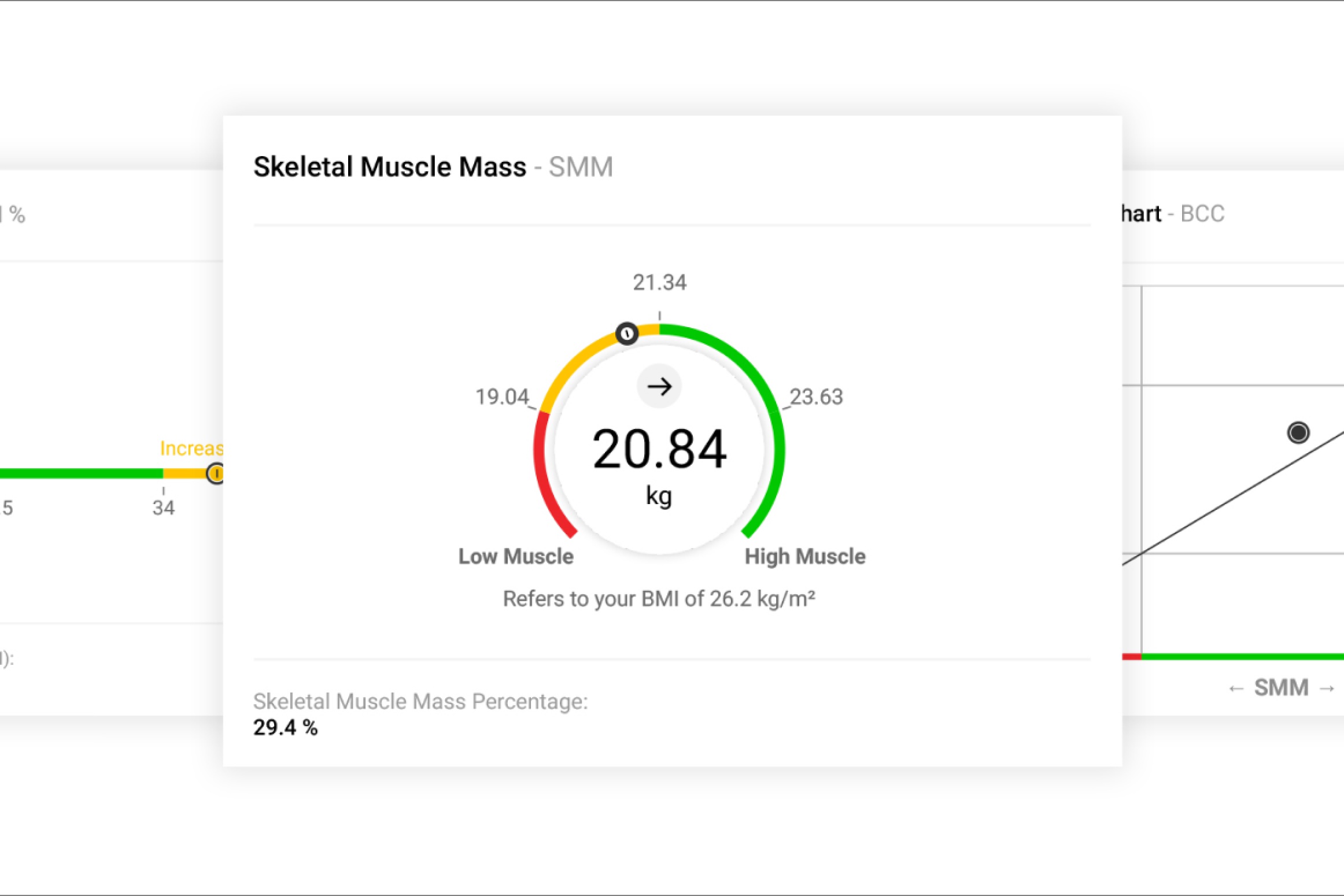

Our study incorporates cutting-edge scientific principles to monitor your health post-fast.

To measure the continuous glucose levels in your blood, you will wear a continuous glucose monitor for 14 days from the day you break the fast. We use a simple, coin-sized chip placed on your arm to measure glucose levels every minute. To do this, a sensor with a fine filament similar to a needle is attached to your upper arm, which measures your glucose during 24 hours.
This helps you understand your body's reaction to food intake, recognize hunger signals, prevent cravings, and adapt your lifestyle to maintain glucose balance.
Our study incorporates cutting-edge scientific principles to monitor your health post-fast.
To measure the continuous glucose levels in your blood, you will wear a continuous glucose monitor for 14 days from the day you break the fast. We use a simple, coin-sized chip placed on your arm to measure glucose levels every minute. To do this, a sensor with a fine filament similar to a needle is attached to your upper arm, which measures your glucose during 24 hours.
This helps you understand your body's reaction to food intake, recognize hunger signals, prevent cravings, and adapt your lifestyle to maintain glucose balance.


In collaboration with the ETH Lausanne, we use AI to analyze your diet. By taking a photo of your meal, our technology identifies the contents of your plate, allowing you to track your eating habits during food reintroduction.
MyFoodRepo is a user-friendly app designed to help individuals track their food intake with precision and ease. This is scientifically validated. For those following a food reintroduction diet after fasting, MyFoodRepo becomes indispensable. It allows users to log their meals, monitor their nutritional intake, and observe how different foods affect their body during this crucial phase. By providing detailed insights and tracking progress, MyFoodRepo ensures a smoother transition back to regular eating, helping to maintain the benefits of fasting and supporting long-term health goals.

In collaboration with the ETH Lausanne, we use AI to analyze your diet. By taking a photo of your meal, our technology identifies the contents of your plate, allowing you to track your eating habits during food reintroduction.
MyFoodRepo is a user-friendly app designed to help individuals track their food intake with precision and ease. This is scientifically validated. For those following a food reintroduction diet after fasting, MyFoodRepo becomes indispensable. It allows users to log their meals, monitor their nutritional intake, and observe how different foods affect their body during this crucial phase. By providing detailed insights and tracking progress, MyFoodRepo ensures a smoother transition back to regular eating, helping to maintain the benefits of fasting and supporting long-term health goals.

Partnering with a startup in Berlin, we offer capillary blood tests that can be performed anywhere. Simply prick your finger, place a drop of blood on a small stick, and mail it to our lab for analysis.
These tests allow us to monitor key biomarkers conveniently and effectively without the need for extensive lab visits. We focus on a comprehensive range of medically relevant markers, including glucose metabolism (HbA1c) and inflammation levels, thus providing an overall assessment of your body's organ systems and health status.
Partnering with a startup in Berlin, we offer capillary blood tests that can be performed anywhere. Simply prick your finger, place a drop of blood on a small stick, and mail it to our lab for analysis.
These tests allow us to monitor key biomarkers conveniently and effectively without the need for extensive lab visits. We focus on a comprehensive range of medically relevant markers, including glucose metabolism (HbA1c) and inflammation levels, thus providing an overall assessment of your body's organ systems and health status.


Our new framework of lifestyle questionnaires helps us understand your habits and allows you to reflect on them. These insights are used to calculate your BuWi score, providing personalized recommendations for an optimal lifestyle.
We focus the assessment around the six pillars we place most importance on at Buchinger Wilhelmi: nutrition, fasting, physical activity, sleep and circadian rhythm, environmental health, and overall wellbeing.

Our new framework of lifestyle questionnaires helps us understand your habits and allows you to reflect on them. These insights are used to calculate your BuWi score, providing personalized recommendations for an optimal lifestyle.
We focus the assessment around the six pillars we place most importance on at Buchinger Wilhelmi: nutrition, fasting, physical activity, sleep and circadian rhythm, environmental health, and overall wellbeing.

We will use Bioelectrical Impedance Analysis (BIA) to measure body composition before and after fasting, and after the initial days of food reintroduction at the clinic. This non-invasive method helps us assess your body fat percentage, muscle mass, and overall body water content, offering valuable insights into the changes your body undergoes during the fasting and reintroduction phase.
We will use Bioelectrical Impedance Analysis (BIA) to measure body composition before and after fasting, and after the initial days of food reintroduction at the clinic. This non-invasive method helps us assess your body fat percentage, muscle mass, and overall body water content, offering valuable insights into the changes your body undergoes during the fasting and reintroduction phase.

During fasting, your body shifts from using glucose to ketones (the G to K switch). Understanding the reverse transition from ketones back to glucose (the K to G switch) is equally important. Proper food reintroduction is crucial for:
During fasting, your body shifts from using glucose to ketones (the G to K switch). Understanding the reverse transition from ketones back to glucose (the K to G switch) is equally important. Proper food reintroduction is crucial for: